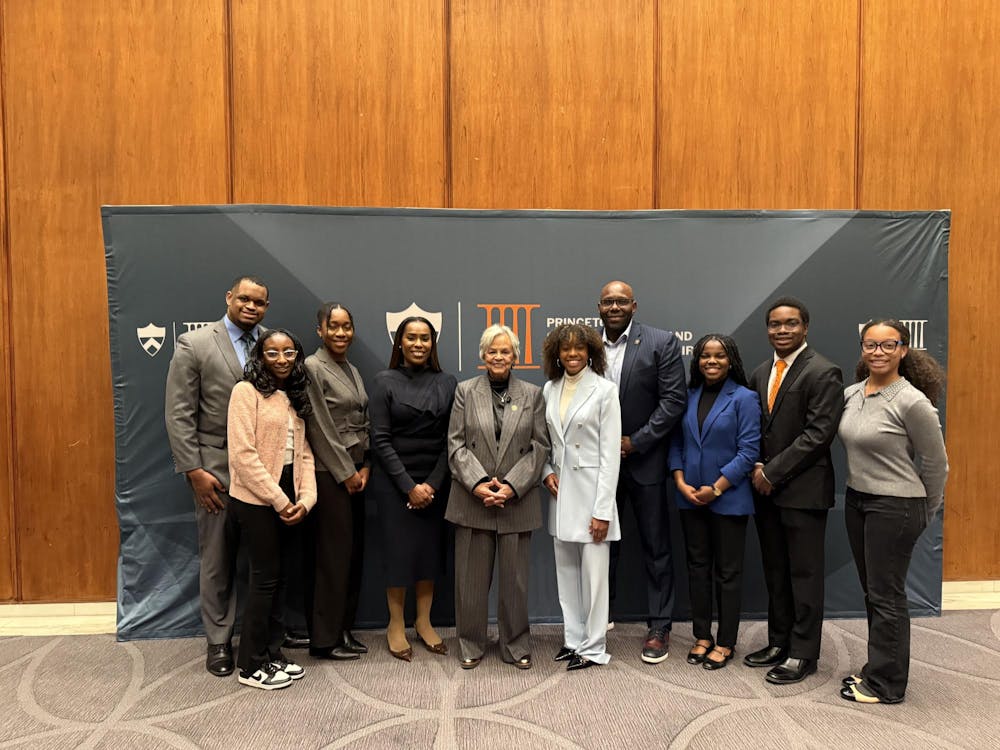The University made approximately $157,000 during fiscal year 2001 on University trademarks and logos, according to Michelle Christy, the director of the University's Office of Research and Project Administration. The $157,000 reflects the gross income and does not account for any administrative or legal expenses.
The University has a standard licensing agreement that it uses with companies wishing to use the Princeton logo on products, which can be anything from baseball caps to sweatshirts to key chains, Christy explained.
"Each organization that we do business with is required to be registered under the Fair Labor Act, which was recently implemented at Princeton," Christy said in an e-mail.
The University receives eight percent royalties on the net sales of logo-bearing items that manufacturers make. These revenues have been relatively flat over the years because the customer base for such items is largely limited to the University community and campus visitors.
"We do not make any determination regarding the marketability or 'goodness' of the product," Christy said. "Rather, we suggest that a vendor contact the U-Store, which would have a better sense of what is attractive to our audiences. We have, however, made comments about certain 'marks' and have suggested minor changes to the designs (in the case of sloppy or muddled designs)."
ORPA tracks some of the articles bearing the logo. "We see apparel in a store and do some follow-up on that, but occasionally we have found some manufacturers who are not currently licensed and signed them up; otherwise we have no real 'watchdog' mechanism," Christy said.
The U-Store buys logo-bearing items from companies that have received an agreement from the University. Over the years, the best sellers have been Princeton insignia apparel.
"These sales are mostly alumni and tourist-driven. Insignia sales have increased over the years and there has been a net rate of 30-percent increase in sales after the U-Store was remodeled because customers found it easier to get the to the items they needed," said U-Store president James Sykes.

The U-Store, however, has seen a decrease in sales this fall.
"We have noticed that there has been a marked decrease in sales after the Sept. 11 event," Sykes said. "Sales are down by around 30 percent at the U-Store unit in Frist Campus Center, which mostly sells insignia and logo items, since there are not many tourists visiting campus these days. There has also been a decrease of 24 percent in the sales of such items at the main unit of the U-Store."
According to Sykes, the top sellers have been the Russell screened crewneck sweatshirt, which sold 2000 units last year at $25; the Russell hooded sweatshirt, which sold 2800 units at $40; the Russell sweatpants, which sold 1845 units at $25; a brass key ring with Princeton logo, which sold 1072 units at $4; and tiger tails, which sold 1410 at $6 each.
The University exempts student agencies that make and sell logo items from royalty fees and does not have any agreement with the on-campus agencies.

"The University has always given the student agencies significant flexibility . . . They have a good amount of creative license, as well, since our students are pretty good about voting with their buck," Christy said.







